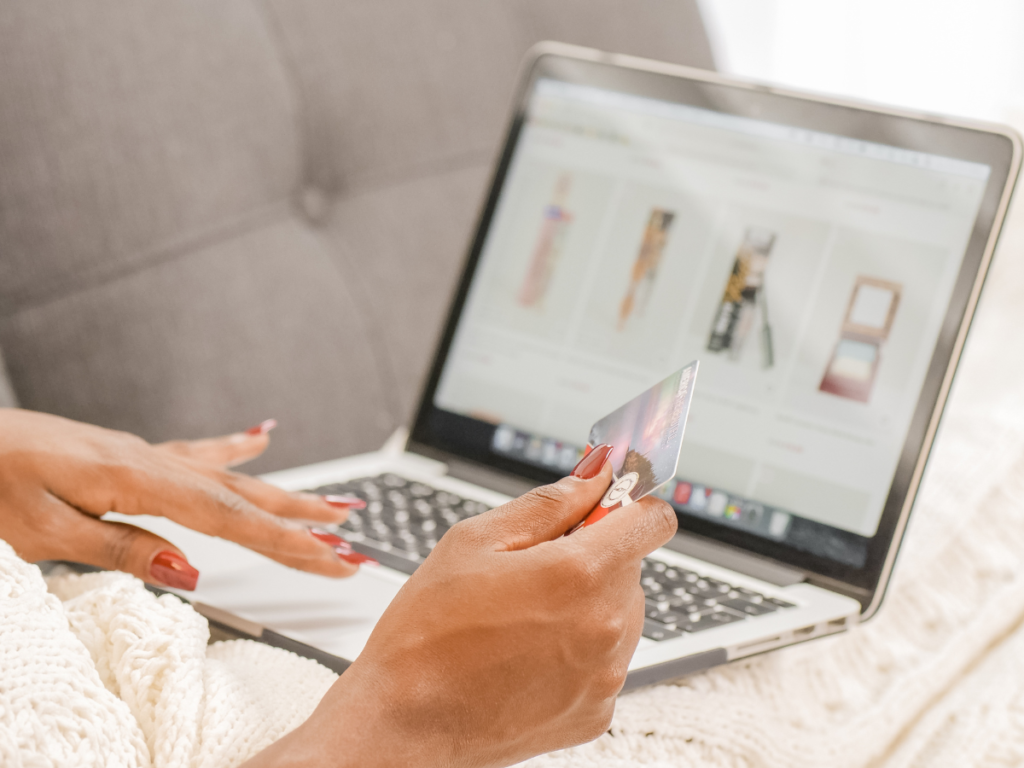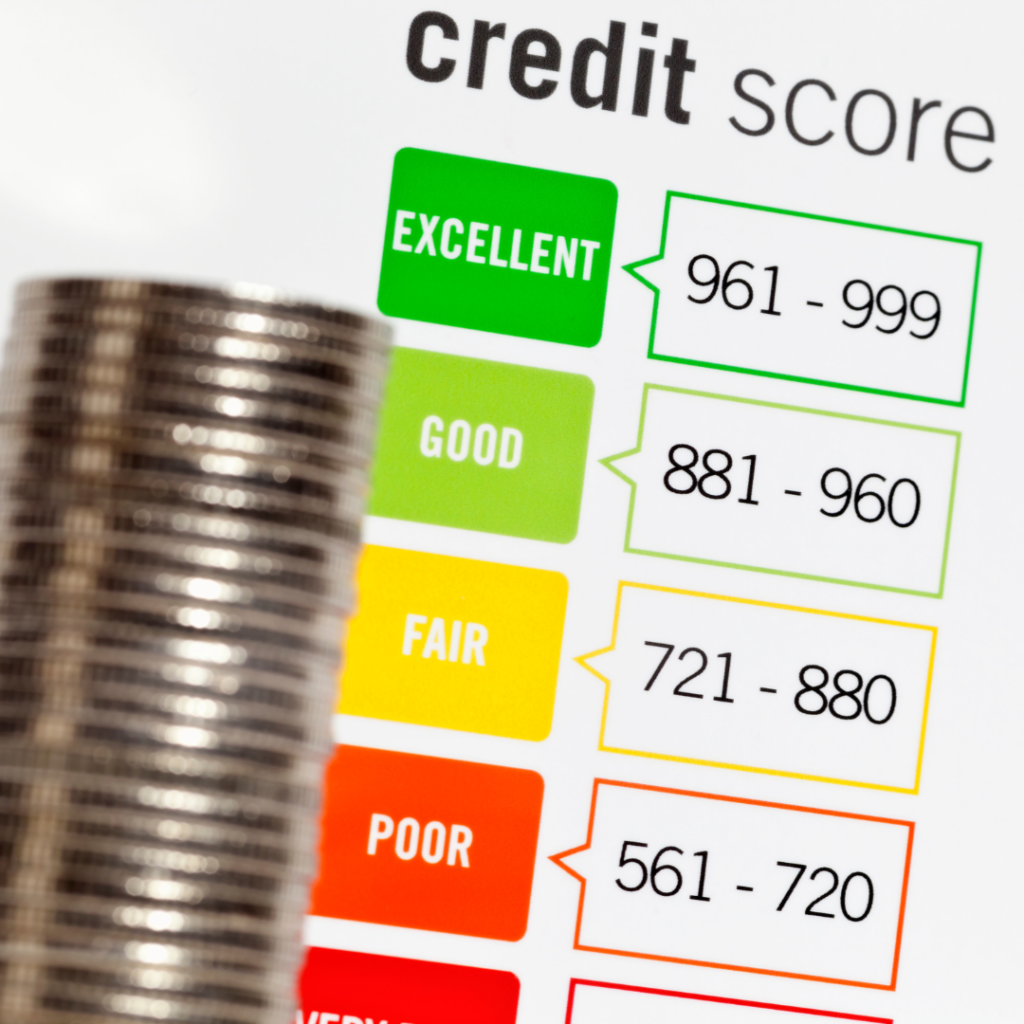Today’s post is from Dan at The Financial Wilderness, a UK based personal finance blog on the impact of people using Klarna when online shopping. Over to Dan!
Hello everyone! If there’s one section of the economy right now that’s still going gangbusters, it’s online shopping. No matter if we’re giving ourselves a little treat to get through this or getting in those essentials it’s become a major focus of the way most of us shop. Increasingly, I’ve seen a payment option being offered online to pay for your purchase in instalments with an organisation called Klarna, so I investigated further….
How does Klarna work?
Klarna is actually technically a bank! Started in 2005, it’s one of the most successful fintechs in terms of growth in the last few years, coming out of Sweden – the growth rate and success story has been phenomenal, as it’s now involved in $21bn of online sales.
So as to how it works, let’s say you buy a table. If you purchase though Klarna you might split it into 3 payments – paying a third now, a third in 30 days and the final third in 60 days. Now the marketing spiel from Klarna has this as allowing you to enter a “try before you buy” arrangement – you hand over very little cash before you’ve actually seen your table, something people worry about in the internet age.
The selling point to you as a consumer is that you pay no interest on the bit that you’re paying later, and it doesn’t go on your credit report. (Although, you do pay interest and potential hits to your credit report if you make those payments late.)
Klarna can also offer through some merchants slightly longer term payment plans which are more similar to classic consumer lending. In these cases there may be impact your your credit rating and interest to pay – it depends on the individual arrangement.
So you can easily understand the business proposition that Klarna is selling – if you’re a company is makes it easier for people to buy your goods, and if you’re a consumer you may have more flexibility with that purchase.

What is the catch with Klarna?
So…. if you only rigidly used Klarna in the way that the marketing says, dutifully borrowing for a very short term period and paying it back you might actually conclude it’s a good thing. In fact, you’re actually making a small gain because you’re borrowing money at no cost.
The danger or catch of Klarna is unfortunately much more subtle. They are a company and they need to make profit. Now they make some of their money by charging the merchant a small cut for you using the service, which is fair enough, particularly if it generates a sales lead.
However, also you don’t make profit by handing out money for free. Thus, on the consumer side of the business there’s a calculus in there that a number of consumers will miss their payments and go into debt with Klarna.
Whilst this is potentially likely to be on smaller purchases, it represents the beginning of the debt cycle – you couldn’t pay the thing off, so now you have to pay it back with interest…. which makes it even harder to pay off etc. etc. It’s an easy trap to fall into, with buy now now pay later approaches.
We at the Wilderness take a very simple and hard line – never use Klarna or buy now pay later services unless you absolutely, 100% need to.
Why I see Klarna as problematic
And there’s a few reasons I’m particularly wary of debt traps here, and see it as more of a risk than elsewhere:
The first is that Klarna is largely targeting themselves at young millennials, people in the 18-30 age bracket who are more likely to face uncertainty with their income, and are face lower incomes that may place them in a vulnerable position of finding they can’t make a payment and starting the debt cycle. In some but not all cases, member of this group may be less likely to think longer term about impacts their finances.
The second is that Klarna is largely focused on the purchase of non-essential goods – most of the retailers I’ve seen it appear on have been clothes sellers for example. Sometimes you’re forced to take on debt for the really unexpected and severe shocks in life, but I’d always say borrowing for what is ultimately a non-essential purchase is a pure no-no.
Thirdly is that Klarna creates bad psychological purchasing habits – we don’t like to admit it but we’re creatures of habit, and setting up a mindset where we buy something because we want it now, and we’ll worry about affording it later is not a healthy place to be for your money management – especially again for those in the millennial bracket.
It creates an illusion that everything is free, because money does not change hands. That’s already something can be an issue with a credit card, but when you don’t even see the numbers tick down on your bank account it’s even more difficult to manage.
If I can build on this point a little, various studies have shown that we humans are absolutely terrible at mental accounting – we often likely to be in come cases quite wildly optimistic about our ability to handle financial issues in the future, and this can lead us into trouble with services like Klarna.
I struggle to think of a situation where you’d absolutely need to have some new clothes right this second, and couldn’t wait till payday when you have the certainty than you can afford something because you know it’s gone out of your bank account.
Are Klarna clear on their fees?
In fairness to Klarna, their app is quite clear in terms of laying out what you owe and when you owe it, and you can set up reminders and notifications to make sure you don’t miss those deadlines by accident and incur charges you don’t need to. I see you can also ask once for a further 10-days without interest being charged again to clear a balance.
However I definitely have to give black marks to Klarna for a real lack of transparency on their fees and charging structure if you do miss payments.
The nice bits of “interest free” and “no credit rating” impact are literally all over their website, but good luck trying to find details of precisely what interest you’ll pay if you do miss a payment, with them instead “inviting you to call an adviser to discuss your options”.
I hope (I really do) that you would never sign a loan agreement without being clear how much you’re agreeing to pay back so I find this concerning. I found a range of estimates on what Klarna’s interest charges might be online, but was unable to fix this down.
Does Klarna affect my credit score?

If using buy now pay later services only, only a soft search is run on your credit report, which won’t affect your credit scoring so long as you pay back the money on time. If you don’t, this can result in a marker regarding late payment being placed on your credit report which can be seen by lenders.
If you use a more traditional form of lending or financing in the form of a longer term loan, a hard credit search will be run against your name, something any lender would do to assess your credit quality.
A hard search does have potential to affect your credit score, as it’s usually a pre-cursor to lending and financial services companies may see it as a reason to be nervous if you’re taking out multiple pieces of lending at once.
If you’re looking for tips on managing your credit score, have a look at our articles on how to improve your credit score.
Does Klarna affect a Mortgage application?
There’s no clear answer on this, as there isn’t a fixed policy on how a bank or a building society would consider Klarna – but this answer is that it’ll have some effect as they’re likely to consider it as a form of credit. The much harder question is the extent it might cause issues.
Any markers on your credit file caused by Klarna are something banks and building societies may observe as a factor when going through your bank statements/financial history. as part of a mortgage application.
I believe most banks or building societies are likely think of Klarna as “unsecured credit” – so it would be equivalent to use of a credit card. If a lender is particularly restrictive it could end up in a harsher category (as something like a payday loan would) which could be more punitive.
If you’ve taken a loan, this existing borrowing will also be considered as an ongoing financial obligation from a lenders perspective and may limit the size of offered mortgage.
If in doubt that this might cause issues for you, you should always have a discussion with your lender and do your own further research before engaging in any financial product.
Conclusions on Klarna
Whilst it markets itself as a whizz-bang new exciting fintech company, what Klarna is doing is really rooted in an older business model of catalogue shopping. You’d have received glossy brochures of clothes through the mail, which you could order on credit, but it had a reputation to leading some people into financial trouble who bought things despite being in a position they were unlikely to be able to pay it back.
It’s the same business model, just with a larger selection of catalogues from many online retailers.
Where you’re buying anything that’s an non-essential good, I would strongly advise against using a service like Klarna over simply paying for the product then and there. Why build a debt problem you don’t need?
Martin Lewis over at MoneySavingExpert has a rather excellent mantra which feeds throughout his whole website, and it’s very linked to what we believe at the Wilderness as well. It’s to challenge your purchases and ask two key questions:
“If you’re skint, ask if you need it and if you can afford it. If you’re not skint, ask will I use it and is it worth it?”
Martin Lewis
Both questions there are important, but the first one is really important for what it can mean for your finances. Klarna encourages you to go against than mentality and conclude you might need something even when you’re in the skint bucket, and we can never encourage that here.
Any questions?
Have you used Klarna or other buy now pay later services and had issues? Or do you have any other thoughts on questions on Klarna? Drop us a comment below.
And that’s it!
Thank you for reading, and please do check out The Financial Wilderness for other great UK personal finance content!
I so agree with all of this. I wouldn’t touch it with a bargepole, although I do have an account with Next, which went against me wanting to pay upfront which seemed to be impossible to do online at the time. But I always pay it immediately. I guess I was brought up by my mum who managed her money well due to not having much, that you should only spend what you have, and if you want something you make sure you have the money just in case. Using Klarna for clothes, when there’s other cheaper options available without going into potential debt, just feels wrong to me.
It definitely makes you think about credit purchases and how much money it would cost you and if you can afford it.